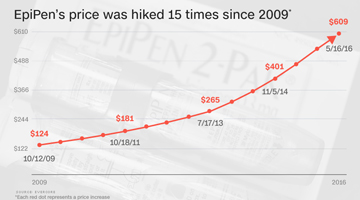|
| |
|
| |
|
|







|
|
TCHS 4O 2000 [4o's nonsense] alvinny [2] - csq - edchong jenming - joseph - law meepok - mingqi - pea pengkian [2] - qwergopot - woof xinghao - zhengyu HCJC 01S60 [understated sixzero] andy - edwin - jack jiaqi - peter - rex serena SAF 21SA khenghui - jiaming - jinrui [2] ritchie - vicknesh - zhenhao Others Lwei [2] - shaowei - website links - Alien Loves Predator BloggerSG Cute Overload! Cyanide and Happiness Daily Bunny Hamleto Hattrick Magic: The Gathering The Onion The Order of the Stick Perry Bible Fellowship PvP Online Soccernet Sluggy Freelance The Students' Sketchpad Talk Rock Talking Cock.com Tom the Dancing Bug Wikipedia Wulffmorgenthaler |
|
bert's blog v1.21 Powered by glolg Programmed with Perl 5.6.1 on Apache/1.3.27 (Red Hat Linux) best viewed at 1024 x 768 resolution on Internet Explorer 6.0+ or Mozilla Firefox 1.5+ entry views: 234 today's page views: 199 (8 mobile) all-time page views: 3386240 most viewed entry: 18739 views most commented entry: 14 comments number of entries: 1226 page created Fri Jun 20, 2025 04:33:21 |
|
- tagcloud - academics [70] art [8] changelog [49] current events [36] cute stuff [12] gaming [11] music [8] outings [16] philosophy [10] poetry [4] programming [15] rants [5] reviews [8] sport [37] travel [19] work [3] miscellaneous [75] |
|
- category tags - academics art changelog current events cute stuff gaming miscellaneous music outings philosophy poetry programming rants reviews sport travel work tags in total: 386 |

| ||
|
This is one blog post that's gonna flow all nice and sweet... Big Pokédata Fad it may or may not be, but playing Pokémon Go properly is serious business. There's been plenty of data mining going on, some local efforts of which have even hit the news; I'll present some of my favourite pieces of research from the field here:
SGP in Name Only Our International Olympic Committee three-letter code has been changed to SGP, but it'll always be SIN to me, darn it; there goes one more conversation starter for our athletes, during the after-event social rounds...  Names change. Natures... don't. [N.B. Don't get me wrong, I'm not against our finance hub position per se.] (Source: nexusandme.com) Then again, there remains more than enough of that to go around. To begin with, Singapore Pools and the Singapore Turf Club have just been officially exempted from the online gambling blanket ban, to absolutely zero surprise from yours truly. One really has to pity those deluded The State's Times forum contributors who lauded the feel-good reasons given for the original ban, when it was clear as day that this was the intended outcome from the start (capture local market, offer shit odds). What, did they seriously think that this government gave a flying crap about the ethical implications of gambling, fresh from opening two mega- Whatever, I suppose that their parent organization Hey, at least some of that haul's going towards local sports... er, did grassroots football get just S$70000 for the whole of last year? And, as is the custom with Presidential elections here (by the way, REACH has just cancelled a scheduled forum on the Elected Presidency, due to "lack of interest"), the FAS incumbents are blocking the heck out of the process. This happens as (now-ex) England manager Big Sam was lured into a secretly-taped conversation entailing flying here for monetary consideration involving shady player transfer deals. Well, at least he left with a 100% record. On the bright side, it seems that ambassadorship here remains one of the more attractive postings that the U.S. Foreign Service has to offer, given that it took US$2.3 million raised for Obama, coming in fourth among all countries; something to be proud of, I guess. They Never Learn, Do They? It's high time for some pet topics to make a return, after the GOD-EMPEROR TRUMP had drawn attention to U.S. politics for so long. We were well overdue for a banking panic, so Deutsche Bank kindly stepped up to the plate, with the revelation that the SEC were after them for a US$14 billion fine. This comes after years of short-termism (which, to be fair, is pretty common in the industry), and has left them putting out feelers to Mommy Merkel for a bailout. She's apparently not too keen on it, being busy with managing the flood of doctors and engineers from Syria and Africa, but as with all games of high-stakes poker, cheap talk is cheap. But, before we carry on slamming the greedy bankers as usual, one might consider the spark that set the whole pile of tinder on fire: the US$14 billion SEC fine. In Deutsche's defence, I'm uncertain how many banking entities there are, that can tank a hit of that magnitude with on-hand liquidity (on the other hand, there's now no doubt in my mind that TRUMP can make Mexico pay for the wall... though ironically, it's currently America that's paying for Mexico's wall) Anyway, this tale might have a happy ending (for now), with reports surfacing that the fine would be reduced to US$5.4 billion, causing its share price to rebound slightly to about US$13 from a low of about US$11.50, from some US$30 last year. This amount also coincidentally happens to be very close to Deutsche's declared litigation reserves of around US$6 billion, which cannot help but make one wonder about how penalties of this magnitude are calculated, in the first place (hint: it's good to have guns and force projection capabilities) [N.B. World powers seem to be warming to collecting protection money, with the U.S. Congress overriding Obama's veto on shaking the Saudis down to compensate 9/11 victims (even if the actual implementation remains doubtful); Japan's getting the idea, though, and they're now chasing Apple for over US$100 million in back taxes.]  "...and I hope this teaches you what happens, when you don't pay your Foundation fees on time." "Yes, ma'am. Sorry, ma'am. We'll pay promptly next time, ma'am." (Source: nationalreview.com) This has reignited the too-big-to-fail debate, but frankly the basics haven't changed since 2008, or at least the advent of the existing banking system: size is great when competing with other (especially foreign) firms, due to economies of scale, increased capital, etc (as recognized with the long-ongoing consolidation of Singapore's own banks). The tradeoff is then that these behemoths know that they are protected from their worst mistakes, because they're so big that their collapse could wipe out the rest of the economy... which encourages irresponsible risk-taking because, hey, free money! No, nobody's really fixed it, and yes, it'll happen the same way again - possibly not with mortgages, but some other brilliant financial innovation, not that it matters. Deutsche is very, very small potatoes compared to China's real estate bubble, however, and the good - or bad - news is that the CCP can let it simmer almost indefinitely. While an industry billionaire has been the latest to sound the alarm, it increasingly looks as if there won't be a massive crash - just a slow, creeping stagnation (as with Japan), where builders and property owners (likely "encouraged" by the authorities) refuse to sell cheaply, but newcomers - whether due to unwillingness or inability - don't buy in. With Pettis reiterating that China's internal debt situation is untenable, commentators have filled in the gaps, and reasoned that since the CCP elite are definitely not going to relinquish their loot (or admit complicity), the obvious time-honoured solution would then be to stoke the flames of nationalism, to make sacrifices more tenable to the working class - thus all the sabre-rattling over the South China Sea. On that, a PLA director has now threatened sanctions on us for not rolling over on their SCS demands, with an op-ed in their Global Times mouthpiece going on about how this has revealed Singapore's "true face". I mean, no shit, I don't remember us ever claiming to be China's vassal state, and if it comes down to that, I don't recall the motherland exactly having a stellar record of defending overseas Chinese communities in their times of direst need, either. Medicine and Health Economics If territory's separating Singapore and China, diabetes may yet serve as a common foe; it has recently been described as "possibly destroying China's healthcare system", with the disease afflicting over a tenth of the population already, and directly responsible for about the same proportion of costs. Not to be left behind and in a similar situation, Singapore has just announced a National Diabetes Database, to integrate data from various local health organizations. Not only that, the FDA has just approved the first wearable pump. That's the good news first. The nastier bit now. Diabetics require insulin for treatment, and insulin costs have absolutely exploded over the past decade or so. While there are differing figures on exactly how much - one source has the wholesale price rising from US$45 per unit in 2001, to US$1447 today, while another estimates individual monthly costs rising from US$100+ just a few years ago, to US$400+ today - one thing's for sure: it's big. Before we continue, this is not even the biggest story about healthcare costs currently. That dubious honour belongs to the EpiPen, a device that simplifies the injection of a determined dose of adrenaline, usually to counter severe allergic reactions. As with insulin, and unlike most other forms of technology, the price of EpiPens has been rising steadily: from about US$100 in 2007, to some US$600 today.  (Source: money.cnn.com) The obvious question first: is there any direct justification, for such steep price increases? From all indications, no. The modern process for synthesizing insulin has been around for some time, and any R&D improvements should have reduced its production costs, in any case. As for the EpiPen, one could imagine that it's not exactly rocket science - it's fundamentally a spring-loaded syringe, after all! Industry insiders have estimated its production costs at US$30 maximum, and medical hackers have indeed fabricated their own bootlegs on that budget (but, remember to put the right stuff in, ok?) Given that my research happens to touch upon the diagnosis of diseases, affordability always lurks at the back of one's mind - a near-perfect test or cure is practically useless, if its price is out of reach of most patients. Personally, the field's not one that should be gotten into for the money, and one easily understands why many are eagerly bidding for the right to punch notorious price-gouger Martin Shkreli in the face. In their defence, Shkreli and EpiPen CEO Heather Bresch have claimed that their actions were completely legal (technically if not morally, they were), and that the blame should be laid at the door of America's broken healthcare system. Moats and Fortresses So the story goes, pharma companies take huge upfront risks with developing new drugs and devices, of which only a fraction get past the all-powerful FDA (which has, indeed, recently just swatted down an EpiPen alternative; this has cultivated a breed of biotech penny stock speculators, among of whom Shkreli was one). As such, these few (heavily-patented) success stories will have to pay for all those failures, and any attempt to control pricings would just guarantee that these firms become unprofitable and shut down, leaving no development for the future. This should at least make high prices sound more reasonable (not that it's of too much consolation to the patients), though of course there's a lot of space between "necessary to stay afloat", and "bathing-in-champagne level naked greed". Quite often, it's hard to tell, unless the patent owner has Shkreli-type honesty on his robber baron ambitions. What is undeniable is that they have almost all the power in market negotiations - when faced with death, no price is too high to pay. It gets even more interesting. In reality, medical drugs are seldom sold directly to the consumer, instead being prescribed by health professionals. After that, the bulk of the tab is then picked up by the patient's insurance (let's just say he had better have a policy, in America). What then happens is that the hospital and the insurer hammer out a deal - the hospital argues for a certain reimbursement figure from its own perspective, the insurance representative hacks it down, and they meet somewhere in the middle. It can be noted that the numbers are all very fuzzy at this point - when asking for US$1000 might get one US$100, it doesn't take a genius to figure that simply starting out at US$2000, might result in extra cash. Definitely, negotiations are not completely baseless - there's probably some auditing to ensure that the final sum is vaguely reasonable, accounting for fixed initial costs such as medication prices... hmm...  Price doubled again?! Eh, what the heck, I'm not the one paying for it. Dinner again later, sweetheart? [N.B. Let's be honest, pharma sales reps have... aesthetic standards.] [N.N.B. GOD-EMPEROR completely right again, got backstabbed for trying to save an ungrateful employee's job. Sad!] (Source: cubithealthcare.net) Inevitably, the pharma companies will happen to realise that coming up with some excuse to jack up their prices is by far the easiest way to secure profits, particularly for conditions for which no competing drug has been approved. Hospitals have to cough up, but they don't care that much if they can get the insurer to cover for the difference; a chunk gets hocked off to the general taxpayer, of course, and the uninsured get totally ripped off, but that's just "the system". Then again, the entire medical profession has long been a moat in of itself, due to strict training quotas in most countries, which has kept salaries for doctors relatively high. There's been quite a bit of chipping away at the edges, however, with online spectacles retailers like Warby Parker already happily eating into optometrists' bread and butter markups - it's hard to argue against multi-fold discounts when the customer literally can't see the difference, one imagines. Which brings us to the other traditional go-to profession, law. As with medicine, it seems likely that it has been the enforced quota on the supply of lawyers, as much as anything else, that has kept salaries up; this has come to a head here with the opening of the local market to foreign players, as well as an influx of aspirants from (admittedly fairly well-regarded) overseas universities - not that it's stopping anyone. Well, perhaps Amos Yee can now hire a better one, for the next time he appears in court for practising free speech... The Authority of "Science" but rather because its opponents eventually die, and a new generation grows up that is familiar with it." - Max Planck After all that, at least it appears that the problems with the health industry for one are mostly about regulations and such; thus, get a fearless reformer in to chop a few heads and fling about a few huge warning fines, and it'll be all a-ok, right? Just a moment here. Remember the linkage between white rice and sugar - and thus prevalence of diabetes - that hit the local papers a few months back? Now, if one thinks about it slightly more deeply, there are at least a couple of question marks: firstly, do they seriously expect Singaporeans to shift away from rice, and secondly, how is it that such an obvious-seeming relationship - refined carbs to sugar to diabetes - took so long to surface? A New York Times report, from a couple of weeks ago, might provide more context. In short, the sugar industry - including downstream users such as Coca-Cola and candy makers - has consistently funded studies that claim little or no correlation between sugar and various diseases, instead slyly insinuating that saturated fat was the culprit. Not only that, when John Yudkin attempted to push his dissenting opinion in the 1970s - starting with the reasonable hypothesis that refined sugars were far newer to the human diet than saturated fats - he was attacked viciously by the sugar lobby, including the highly-influential nutritionist Ancel Keys. The exceedingly-confident Keys (a hedgehog if ever there was one) eviscerated his British colleague from his position of institutional power, backed by his interpretation of the seminal Seven Countries Study. It is only now, with both pioneers having passed on for some time, that the topic has re-emerged (i.e. lower chances of immediate career damage)  Bowl of diabetes for the day? (Source: reddit.com) But, before we go leaping on new findings again, consider - how certain can we be of "sugar bad, fat good", this time? Have the various reporters dissected the methodology all the way down? How are we to be sure that it isn't the National Fat Association, or the meatpackers' unions, or even the salt lobby, bankrolling this counterstrike against Big Sugar? To be honest, speaking for myself, even beginning to attain some actual insight into the validity of these new results, would take days of digging into and tracing the original papers. This process involves time and resources that, frankly, extremely few have access to. Seen in this light, is it any wonder that so many remain skeptical of, say, climate change? Or vaccines? More precisely, this is the distinction between the hard science of mathematical physics, and the various much softer "sciences", where humans enter the picture; after hearing of yet another conveniently-overturned finding in the latter, I find it hard to blame the general public for treating popular scientific claims as being geared towards private interests (e.g. against fossil fuels, for West Virginia coal miners) - which seems to have left Indonesia with going with religious appeal instead, for one (but, everyone knows what truly works) To end off on this, it could be instructive to note that weed is not only actively being lobbied against by Big Pharma (since it would directly cut into sales of various pain-relieving drugs), it has also acquired a bunch of other deep-pocketed enemies: the alcohol industry (recreational substance competitor), the police, and private prisons (since a big chunk of their "clientele" were busted for possession of leaves). Just something to keep in mind for the future, where we might well get similar tell-all exposés about how weed was demonized largely because of commercial considerations... The Lost Hepburn Advert Been around for a while, but just got to see it: An ageless quality Next: Very Short Stories
|
|||||||
 Copyright © 2006-2025 GLYS. All Rights Reserved. |
|||||||